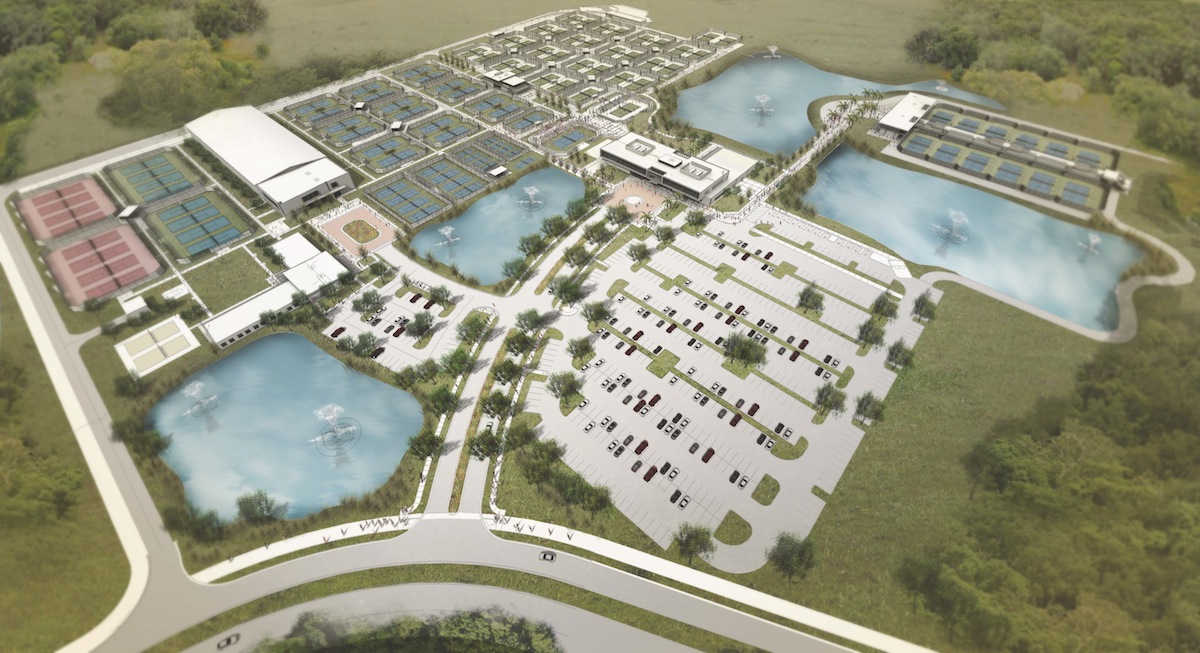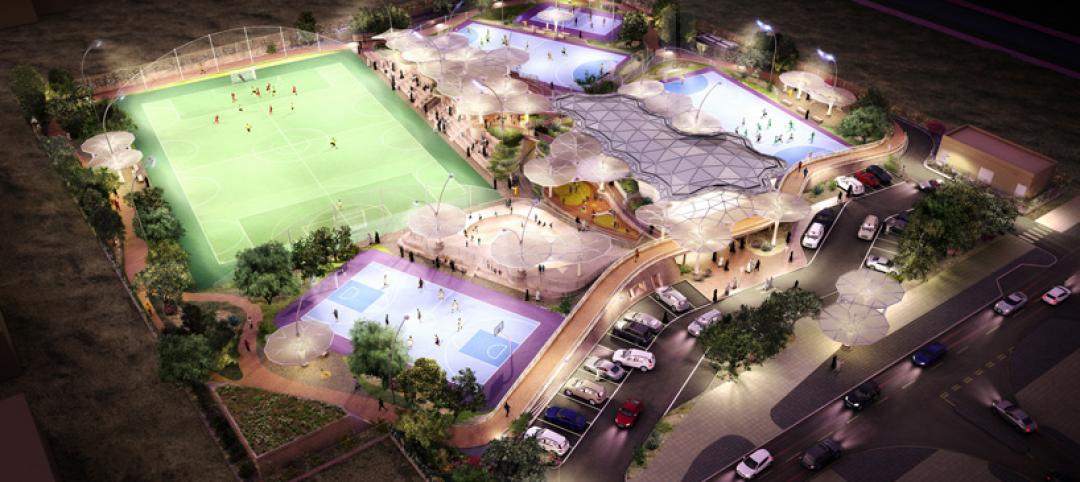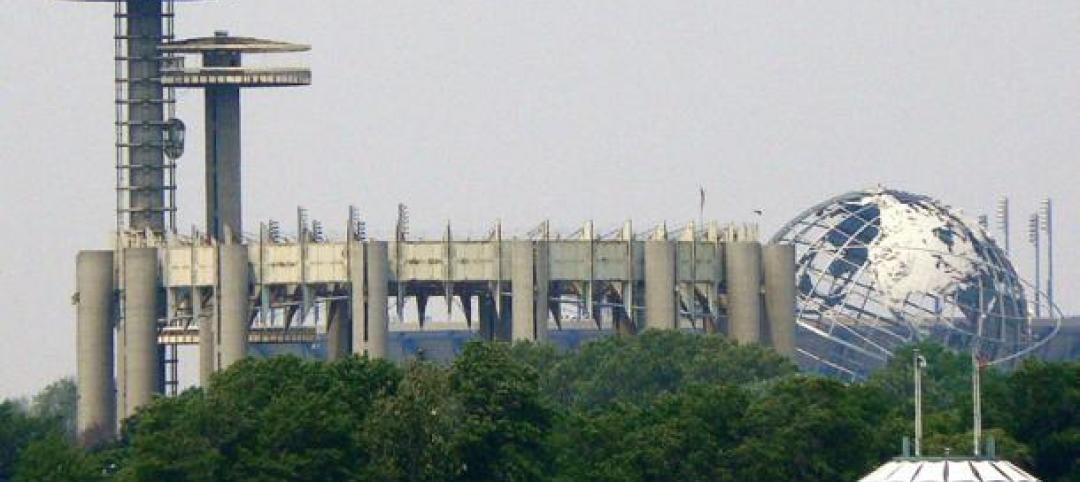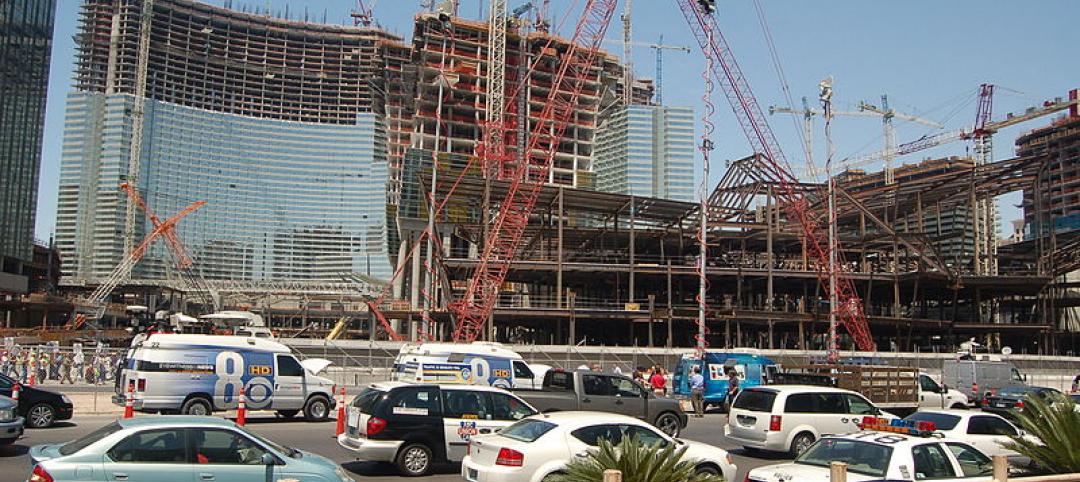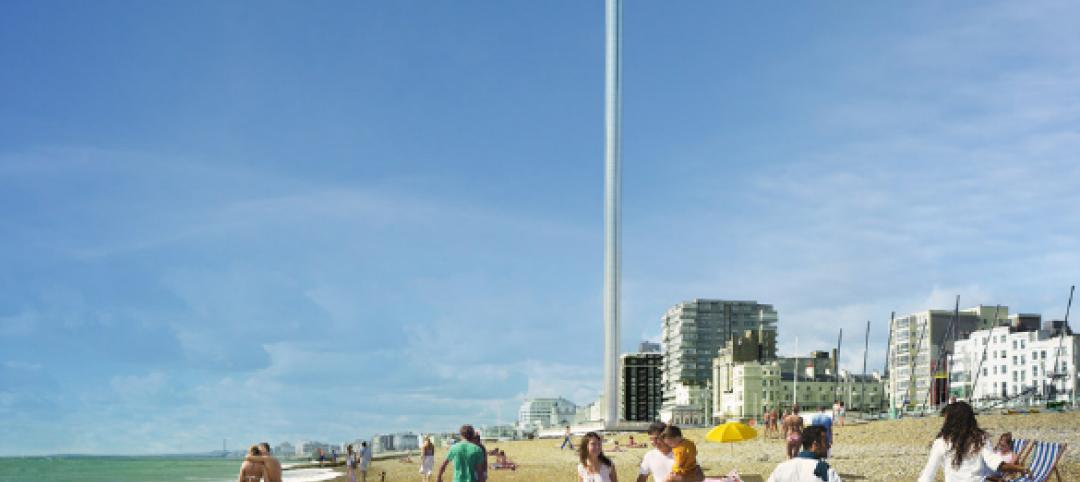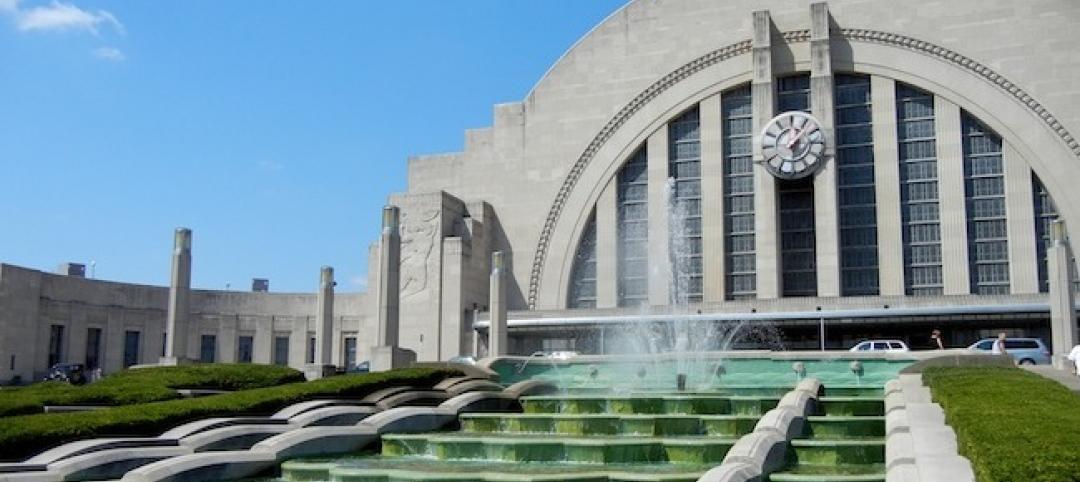On April 8, the United States Tennis Association broke ground on its $60 million USTA National Campus in Lake Nona, near Orlando, one of the country’s fastest-growing communities. With 106 courts and 270,000 sf, USTA’s New Home of American Tennis, as it is being called, will be the largest tennis complex in the U.S.
When completed in late 2016, this 63-acre facility—USTA’s first year-round outdoor construction project—will include a Tournament and League Area with 32 Har-Tru clay courts, and 20 Plexicushion hard courts; a Collegiate Tennis Area with 12 Plexicushion hard courts and one future tournament show court; and a Team Tennis USA Area with 12 hard courts that will be used by the 17 USTA Sections, along with local coaches and their players throughout the country to work collaboratively with USTA Player Development.
A High Performance and Player Development Area—with eight Duro-turf hard courts and eight red clay courts—will be able to house 32 boys and girls, and include strength and conditioning components. The complex will also feature indoor and family-area courts, a pro shop, fitness center, locker rooms, lounges, a café-restaurant, and USTA offices.
The USTA National Campus will be a cornerstone for the community’s Sports Innovation & Performance District, an emerging athletic district with a focus on research, design, innovation and technology.
An on-site stadium will be able to accommodate two matches simultaneously and seat 1,200 spectators.
The Building Team on this project consists of Tavistock Development (developer), HKS Architects (architect), BBM (structural engineer), Exp (MEP engineer), EDSA (landscape architect), and DPR Construction (GC). California Products, Har-Tru, and Connor SportCourt are supplying the court surfaces.
“By housing our two divisions devoted to growing the game at all levels, and training the next generation of players and coaches, we can have a greater impact on the sport than we ever had before,” says Katrina Adams, USTA’s chairman and president. (This complex would replace the association’s smaller training facility in Boca Raton, Fla.) Among the dignitaries at the groundbreaking were City of Orlando Mayor Buddy Dyer, and Orlando County Mayor Teresa Jacobs.
The 11-square-mile Lake Nona was a golf community surrounded by farmland and pastures when Tavistock Group, the developer’s parent, acquired it in 1996. The community is part of Orlando, and Tavistock has been working with that city’s economic development team to transform Lake Nona into what local officials are touting as city of tomorrow.
The USTA National Campus will be a cornerstone for the community’s Sports Innovation & Performance District, an emerging athletic district with a focus on research, design, innovation and technology. “We are launching what we think is the perfect partner to our Medical City,” said Rasesh Thakkar, senior managing director of Tavistock Group.
Over the past decade, Lake Nona has seen more than $2.8 billion and 2.4 million sf of clinical, institutional, laboratory space, and infrastructure completed or in active construction. The 650-acre Lake Nona Medical City health and science park—whose institutions include the University of Central Florida Health Sciences Campus and Sanford-Burnham Medical Research Institute—this year is adding the Orlando Veterans Affairs Medical Center and GuideWell Innovation Center.
Lake Nona’s 7,000 entitled acres offer nine residential communities that currently house about residents. Rob Adams, a vice president with Tavistock Development, tells BD+C that the community is entitled to build between 9,000 and 11,000 dwelling units, and will eventually house between 25,000 and 30,000 people.
The community is already served by three public schools, and three colleges. More than 5 million sf of commercial and retail spaces are in place. Lake Nona is where Johnson & Johnson has been conducting its multimillion-dollar, multiyear study on health and wellness. And the community is planning a 334-acre city park that will be Orlando’s largest.
Adams says Lake Nona’s build out is expected to take between 10 and 15 years. And he anticipates that the tennis complex will be a magnet for other business, such as apparel and fitness retailers, to come to this community.
Related Stories
| Jul 2, 2014
Grimshaw's 'kit of parts' design scheme selected for Qatar sports facilities program
The series of projects, called the Al Farjan Recreational Sports Facilities, have been designed in such a way that the same basic design can be adapted to the specific requirements of each site.
| Jul 1, 2014
Sochi's 'kinetic façade' may steal the show at the Winter Olympics
The temporary pavilion for Russian telecom operator MegaFon will be wrapped with a massive digital "pin screen" that will morph into the shape of any face.
| Jun 30, 2014
Philip Johnson’s iconic World's Fair 'Tent of Tomorrow' to receive much needed restoration funding
A neglected Queens landmark that once reflected the "excitement and hopefulness" at the beginning of the Space Age may soon be restored.
| Jun 30, 2014
Research finds continued growth of design-build throughout United States
New research findings indicate that for the first time more than half of projects above $10 million are being completed through design-build project delivery.
| Jun 26, 2014
Plans for Britain’s newest landmark brings in international cooperation
Designers of the London Eye will team up with companies from France, the Netherlands and the United States to construct i360 Brighton, the U.K.'s newest observation tower.
| Jun 25, 2014
Frank Lloyd Wright’s Spring House, Cincinnati’s Union Terminal among 11 Most Endangered Historic Places for 2014
The National Trust for Historic Preservation released its annual list of 11 Most Endangered Historical Sites in the United States for 2014.
| Jun 20, 2014
Sterling Bay pulled on board for Chicago Old Main Post Office project
Sterling Bay Cos. and Bill Davies' International Property Developers North America partner up for a $500 million restoration of Chicago's Old Main Post Office
| Jun 18, 2014
Six World Cup stadiums have achieved LEED certification
In conjunction with the 2014 FIFA World Cup in Brazil, the U.S. Green Building Council (USGBC) announced that six World Cup stadiums have achieved LEED certification, including South America’s largest stadium, Maracanã in Rio de Janeiro.
| Jun 18, 2014
Arup uses 3D printing to fabricate one-of-a-kind structural steel components
The firm's research shows that 3D printing has the potential to reduce costs, cut waste, and slash the carbon footprint of the construction sector.
| Jun 16, 2014
6 U.S. cities at the forefront of innovation districts
A new Brookings Institution study records the emergence of “competitive places that are also cool spaces.”


